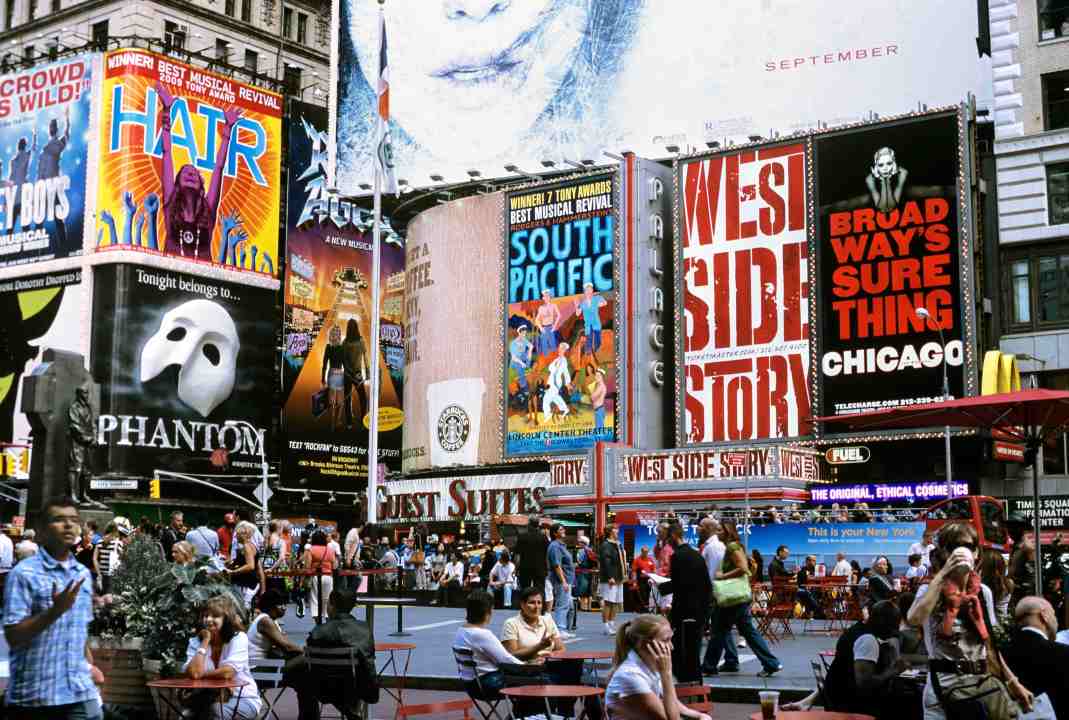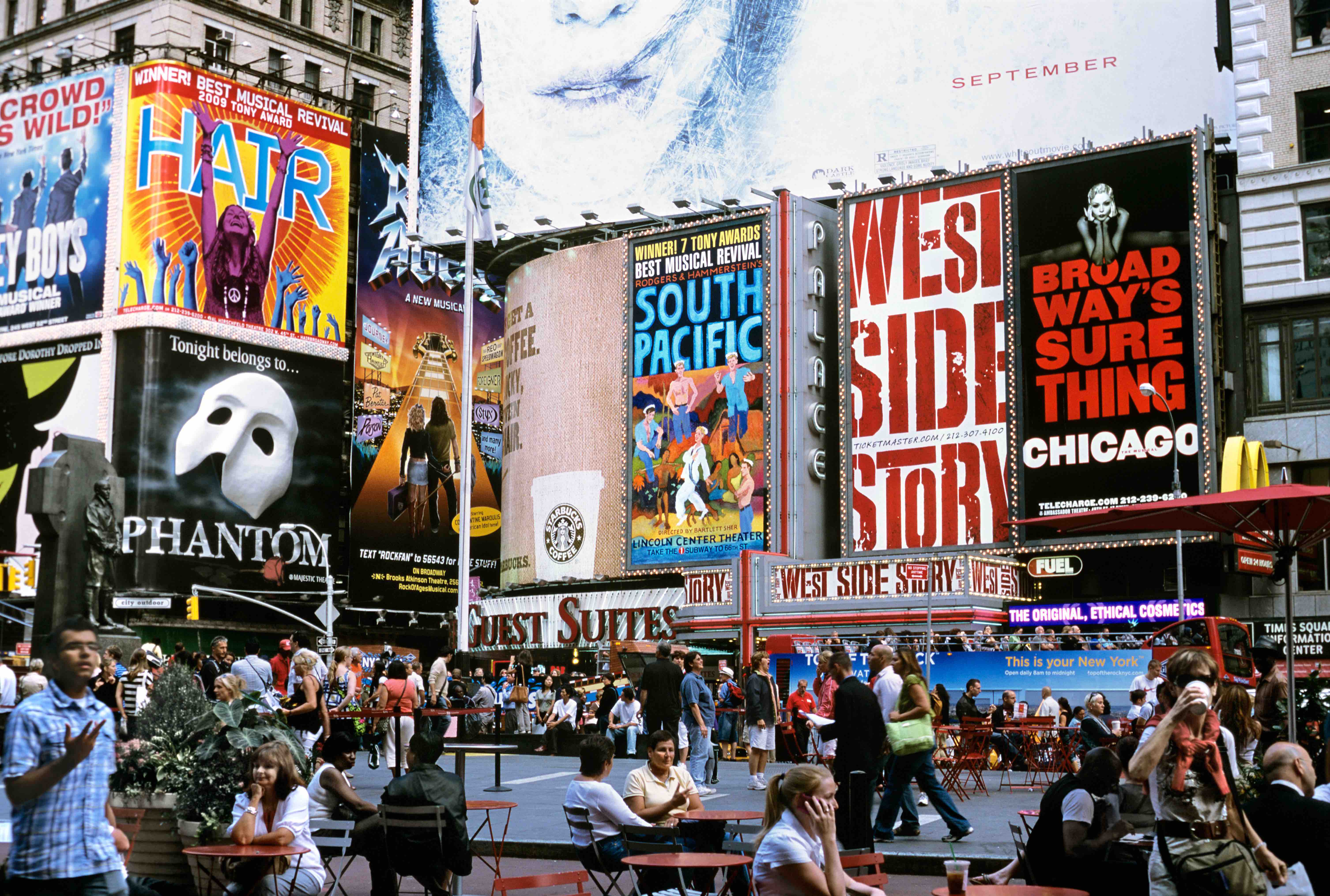You can always rely on theatreland to serve up drama off stage as well as on. Hopefully the spat between Lord Andrew Lloyd Webber and Sir David Hare over whether musicals are ‘killing’ theatre will run and run.
Writing in The Spectator last week, Hare moaned: ‘Musicals have become the leylandii of theatre, strangling everything in their path… are dramatists not writing enough good plays which can attract 800 people a night? Will well-known actors not appear in them? Or did producers mislay their balls during lockdown?’ Lloyd Webber bit back in the Times, bringing up Hare’s flop musical The Knife: ‘David Hare is responsible for one of the greatest musical disasters in history… [He] is probably saying this because he mainly wants to bury his own contribution to musical theatre.’
Reading this exchange, I had to laugh – or rather, grimace in pained recognition. It was like seeing two sides of myself having a scrap with each other. Last year I had a musical in the Brighton Fringe Festival – and this year I will have a straight play in the same lively cavalcade of creativity which lights up our shimmering city by the sea in the month of May.
Last year’s show wasn’t my first outing to the bazaars of Thespis. In 1990 I had a short play in the May Days season at the Royal Court: How Now Green Cow, an unusual anti-ecology polemic. How thrilled I felt sitting there in the Sloane Square premises where John Osborne had once ranted! I was excited to work with Max Stafford-Clark (before we knew he was a sex pest) and did my best to appear the studious young playwright. But I knew that my reputation had gone before me when a very famous and elderly actor, popping in to visit Maxie one day, sidled up to me at rehearsals and asked me if he could try cocaine. My lips are sealed – but my nostrils weren’t.
I didn’t get another theatrical outing until 2018 (I was too busy taking cocaine, to be honest), after I’d got a message on Facebook from a writer, Jane Robins, who had been thrown out of her North London book group for liking a Spectator essay of mine on the subject of Brexit. I adored her at first sight and told her we would write a play about her experience; like magic, we also found through Facebook a pair of wonderful patrons – the only pro-Brexit angels in town – who paid us to write People Like Us and laid on a director and a theatre. The play sold out before it opened for a month-long run – and then no one else would touch it, because it was pro-Brexit, while feeble anti-Brexit plays were indulged.
Musicals are, like the best fiction, a lie that tells the truth, suspending common sense in pursuit of the dream. A character bursts into a song about falling in love in the middle of a busy street because that’s how one feels when one falls in love
One of them – part of the Guardian’s ‘Brexit Shorts’ monologues – was by David Hare, and reviewed in The Spectator by Toby Young: ‘Not a populist revolt, but the last gasp of an antediluvian ruling class? No doubt this helps the septuagenarian Marxist avoid facing up to the fact that his beloved proletariat voted in overwhelming numbers to reject his notion of what’s in their best interests, but it’s baloney. According to a report by the Centre for Social Justice and Legatum Institute, Britain’s socioeconomic elite was the only group that voted by a large majority to stay in the EU. Once he grasps this, I’m sure the people’s playwright (Lancing and Cambridge) will feel better about Brexit.’
But I’ve always liked a challenge – and as I was already a cultural pariah, why not make it even harder for myself to find success on the stage, by writing a musical perhaps? I’ve loved musicals since I was a lonely little girl growing up with a headful of dreams in the West Country – and apparently they’re twice as hard to stage as regular plays. Jackpot!
In my Hebrew class I was friends with a jazz musician called Robin Watt – both Gentiles, we drank cocktails from cans while the Jewish students sipped tea – and mentioned to him that I fancied writing some jazz songs. What if we wrote a musical together? Luckily, we’d seen too many fresh-faced kids in wholesome movies declare ‘Let’s put on the show right here!’ and we embarked enthusiastically on this folie à deux. Four directors and a plague later, the appropriately named Hard Times On Easy Street – the unlikely story of a smart woman falling for a gay man – opened.
To say that it wasn’t plain sailing is like saying the Titanic sprung a bit of a leak – but I loved every minute of the six-week rehearsals. I did everything from fundraising to prop-sourcing myself; I always have fun, but this was extra. A lifetime spent in solitary controversialism combined with a hyper-social nature made me revel in teamwork; I wore my lanyard proudly as I went about my errands. In the evenings, in the watering holes of Brighton and Hove, I asked every fit waiter: ‘Are you an actor?’ I saw myself as an impresario – but I must have seemed a total pervert.
The show was a bit of a shambles; one night, a third of the audience walked out in protest at the mangling of one specific song – and there were only 30 people there to start with. On the other hand, a distinguished gentleman came on opening night for free, as he was an actor’s landlord – but returned the following night as a paying customer, because ‘Your lyrics remind me of Johnny Mercer’s, my dear’. Johnny ‘Autumn Leaves’ Mercer? Yes please! I was blessed with a wonderful composer in Robin (a critic said his tunes sounded straight out of the Great American Songbook), but I was pleased with my lyrics; I couldn’t believe that no one had ever thought to write a gold-digger’s brag called ‘Speculate to Accumulate’ (‘So put your back into your gorgeousness / A call of duty, more or less / Leave the poor man standing at his gate / Speculate to accumulate’). However, I was frankly stunned when such obvious classics as ‘Tragic Animals of Instagram’ (‘K is for Kangaroo, lost boxing bout / L is for Ladybird, her house burnt right out! / M is for Meerkat, sick of publicity / N is for Newt, drunken duplicity / O is for Octopus, accused of bad groping / P is for Peacock, whose tail started moping’) were cut.
But worse was to come. My husband had been a tower of strength throughout the various dramas which afflicted the production, telling me over and over ‘This isn’t the end – it’s just the mid-season cliffhanger’. This was reassuring; less so was finding out that he and my composer, previously strangers, were getting together to rewrite my lyrics, which were a trifle ‘verbose’ apparently. ‘I’m not sorry – Dan’s got a way with words. I’m going to write more stuff with him!’ my composer said bluntly when I confronted him with his perfidy. That stung.
On the final night I could be heard buying drinks all round and vowing I’d never get involved in the theatre again – in future I would stay in my lane, the calm shallows of journalism where I have conducted myself so sedately for the past four decades. But ‘Dr Theatre’ is more of a pusher-man, both the curse and the cure, and I was addicted; the summer of ’22 wasn’t over before I had started a new one. It’s a bit Noel Coward, a bit Joe Orton – and there’s just one song in it, right at the end. I’m aware that this is unusual for a straight play – but loving musicals as I do, though understanding that I should stay away from the complications they bring, I couldn’t resist. (‘It’s a gift so don’t refuse it / For He who made the lamb made music.’)
A straight play has ambition – but a musical has hope, maybe the greatest of human emotions. Musicals are – as F. Scott Fitzgerald said about America – ‘a willingness of the heart’. They are, like the best fiction, a lie that tells the truth, suspending common sense in pursuit of the dream. On a trivial level, a character bursts into a song about falling in love in the middle of a busy street because that’s how one feels when one falls in love; on a serious level, they can tackle issues such as racism – West Side Story, South Pacific – without ever lecturing. To set out to entertain an audience shows respect – to ‘educate’ shows contempt. I can’t begin to imagine how awful David Hare’s musical must have been – yet he sneers at the genius of Oklahoma!
So I do hope that the Lord and the Sir can settle their differences – but not too quickly, for the sake of a lovely bit of drama. In the meantime, please come and see my play in Brighton in May – drinks on me!
Awful People – a play by Julie Burchill and Daniel Raven about sex, drugs, race and class – will debut in the Brighton Fringe Festival from 22 to 25 May. You can book your tickets here.







Comments